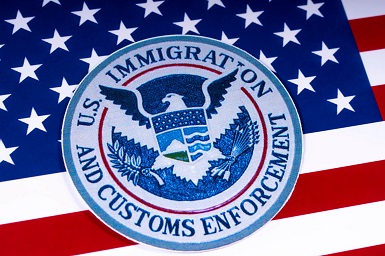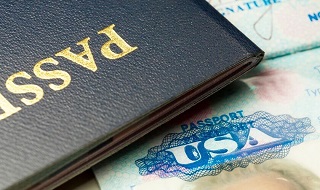What You Need To Know About Student Visas In The U.S.
As an international student, embarking on a study abroad journey in the United States is an exciting and life-changing experience. However, to ensure that your dream becomes a reality, it’s important to start your preparation by applying for the right Visa. Depending on your educational level and intended study program, you may need to apply for either a high school student Visa, a college student Visa, or a vocational student Visa.
This guide provides you with a comprehensive overview of Student Visas, their eligibility requirements, and the application process. Additionally, you will learn how to change the status of your F-1 Student Visa to a dual intent Visa if you wish to remain in the United States after the expiry date of your temporary student Visa.
Before You Apply For A Student Visa
Before applying for a Student Visa to study and reside in the United States, you must first be accepted by a specific educational institution or program. The type of visa you apply for will depend on the level of education you plan to pursue.
For instance, if you aspire to study at a U.S. high school, you may want to participate in an international student exchange program. Reputable student exchange programs not only provide you with a high school to study at, but they can also arrange for a host family to take care of you during your time in the United States.
On the other hand, if you’re a college student, you may want to apply to multiple colleges in the United States as a potential foreign exchange student to see if you’re accepted by any of your short-listed institutions.
Generally, only U.S. citizens and lawful permanent residents are eligible to attend public elementary, middle, and high schools in the United States. Foreign nationals who are in the country on a temporary Visa, such as a Student Visa, may be eligible to attend private schools or to enroll in English language programs.
By taking these restrictions into consideration, you can better understand the Visa requirements and determine the best educational path for you in the United States.
The Two Types Of Student Visas That You Can Apply For
As a non-U.S resident or citizen, you have the option of applying for two key Student Visas: the F-1 Visa and the M-1 Visa. The F-1 Visa is currently the most commonly used visa by international students who seek to study in the United States. The majority of foreign students entering the country for educational purposes obtain this type of Visa.
F-1 Student Visa
If your weekly course load in the United States is more than 18 hours per week, or if you aspire to study at an accredited U.S. college, high school, or language school, you must apply for an F-1 Student Visa. Studying English in the United States at an accredited language school can be highly beneficial to your language proficiency as you’ll be surrounded by the language on a daily basis and have ample opportunities to practice and perfect your speaking, writing, and comprehension skills.
Living and studying in an English-speaking environment can also help to immerse you in the culture and traditions of the United States, further enriching your experience as a student. In order to pursue your goal of studying English, you’ll need to submit an application for an F-1 Visa.
Studying At Public High School Vs. Private High School
If you’re a foreign student who aspires to attend a high school in the United States, or if you’re a parent whose child dreams of experiencing American high school life, it is important to be aware of the differences in regulations between public high schools and private high schools.
Both accepted public and private school students must obtain an F-1 Student Visa prior to their arrival in the United States. However, private school students are given the advantage of being able to study in the country for a duration exceeding 12 months. Whereas, foreign exchange students who attend public high schools are required to leave the United States within a year of their date of entry.
In case you choose to enroll in a public high school, the school must provide evidence that the full cost of your education in the United States has been covered without any subsidies.
M-1 Student Visa
If you’re considering pursuing a vocational program at a U.S. institution, it’s important to know that the Visa application process will differ from those who are enrolling in academic programs. Unlike the F-1 Visa, which is intended for academic study, the M-1 Visa is specifically for individuals who plan to pursue a vocational program.
An M-1 Student Visa is a type of nonimmigrant visa for foreign students who wish to attend a vocational or nonacademic program in the United States. This Visa category is for individuals who plan to enroll in a program that is not an academic program but rather one that teaches practical skills such as cosmetology, culinary arts, or technical schools.
The M-1 Visa is valid for the duration of the program, and individuals with this type of Visa are allowed to participate in practical training after completing their course of study.
This Visa means that if you plan to enroll in a non-academic program, such as an art course not affiliated with a college, it’s crucial that you fill out an M-1 Visa application form instead of an F-1 application form. Ensuring that you have the correct Visa for your program of study is important in ensuring a smooth and hassle-free experience in the United States.
How To Extend Your Stay In The U.S With An F-1 Visa
When applying for an F-1 Student Visa, you will be questioned about your intentions to study in the United States during the interview process. The interviewer’s goal is to determine if you plan to leave the country willingly at the end of your studies.
However, if you are a college student and not a high school student, you have the option to apply for a Green Card before your Student Visa expires. It should be noted that only a small percentage of foreign students are successful in obtaining a Green Card through this method.
To remain in the country as a permanent resident without marrying a U.S. citizen, you must adjust your Visa to a dual intent Visa. This type of Visa allows you to apply for permanent residency after a set period of time.
If you complete a college degree in the United States and demonstrate the ability to secure employment in the country, you may be eligible for a dual intent Visa. Additionally, if you study as a college student in the United States, you may legally remain in the country for an additional 12 months if you participate in a practical curriculum training or optional practical training program. The exact process and requirements for extending an F-1 Visa can vary based on your individual circumstances and the USCIS’s current policies. It’s recommended that you consult with an immigration lawyer for the most up-to-date information.
Curriculum Training Programs & Optional Practical Training Programs
As an F-1 Student Visa holder, you have the opportunity to participate in a curriculum training program offered by your educational institution. This program enables you to work as a teaching assistant or research assistant and even advance to become an associate professor.
On the other hand, if you wish to gain practical work experience in a field related to your degree, you can enroll in an optional practical training program. Optional Practical Training (OPT) is a work authorization program for F-1 Visa holders that allows them to gain practical work experience in their field of study. The length of OPT can vary depending on the student’s degree level.
Therefore, if you are planning to study in the United States in the near future, it is advisable to apply for an F-1 Visa or M-1 Visa and seek the assistance of a knowledgeable attorney to guide you through the Visa application process and increase your chances of being approved.
More information on visa types here
Why Hire An Immigration Attorney From Lincoln-Goldfinch Law – Abogados de Inmigración?
Hiring an immigration lawyer from Lincoln-Goldfinch Law – Abogados de Inmigración for a student visa in the U.S. can be beneficial for several reasons. A well-versed immigration attorney can provide guidance and support throughout the entire visa application process, which can be complex and time-consuming.
Lincoln-Goldfinch Law – Abogados de Inmigración can also help ensure that all necessary documents and forms are completed accurately and submitted in a timely manner. Additionally, the firm’s immigration lawyers can advise on any potential obstacles or issues that may arise during the application process and provide personalized recommendations to increase the chances of a successful outcome.
An immigration attorney can represent students in any legal proceedings that may be required and offer assistance with obtaining work authorization, extensions, or other necessary visas.
Having the legal assistance of an immigration lawyer can provide peace of mind and increase the chances of a successful outcome for a Student Visa application in the U.S.




